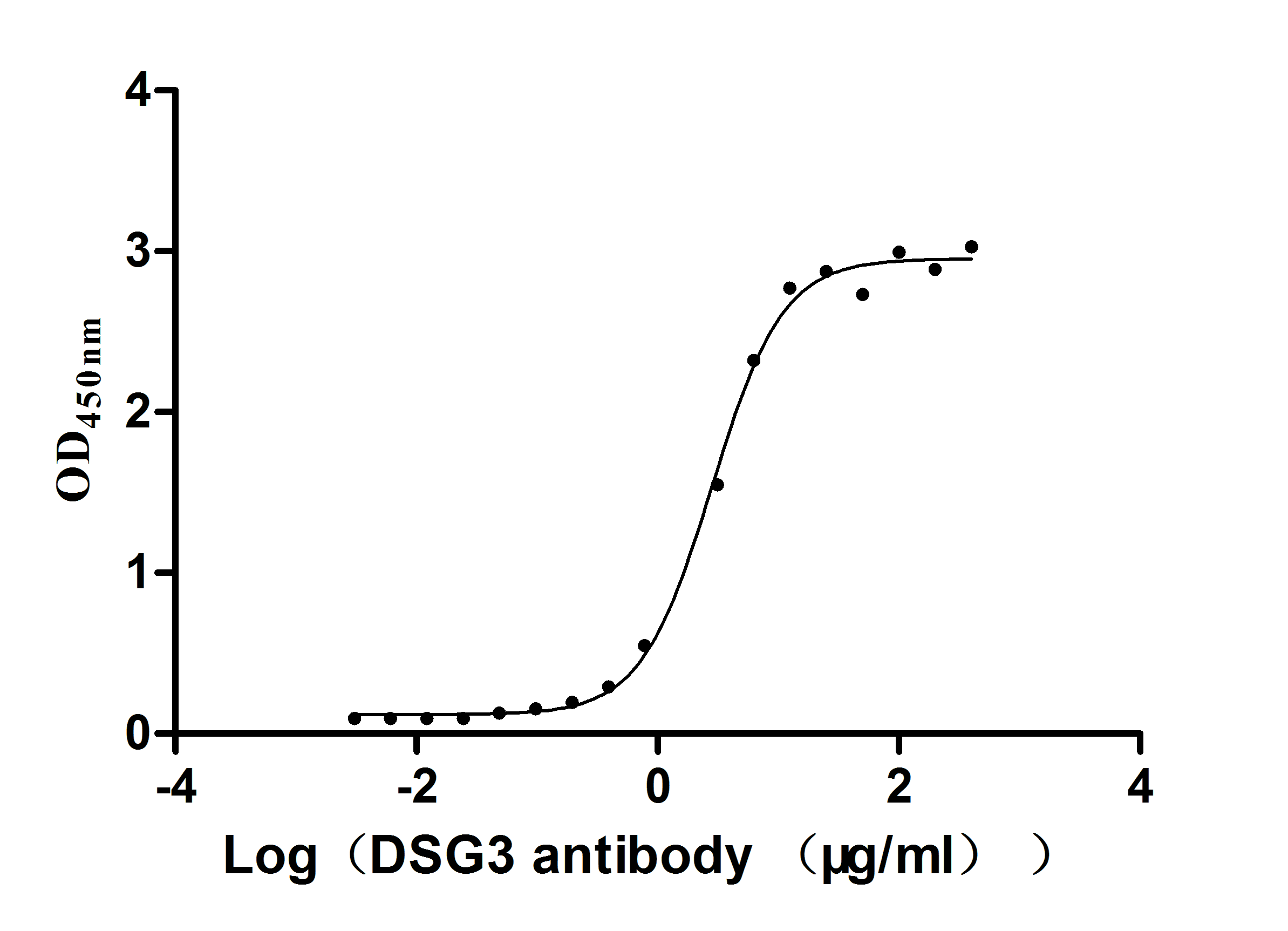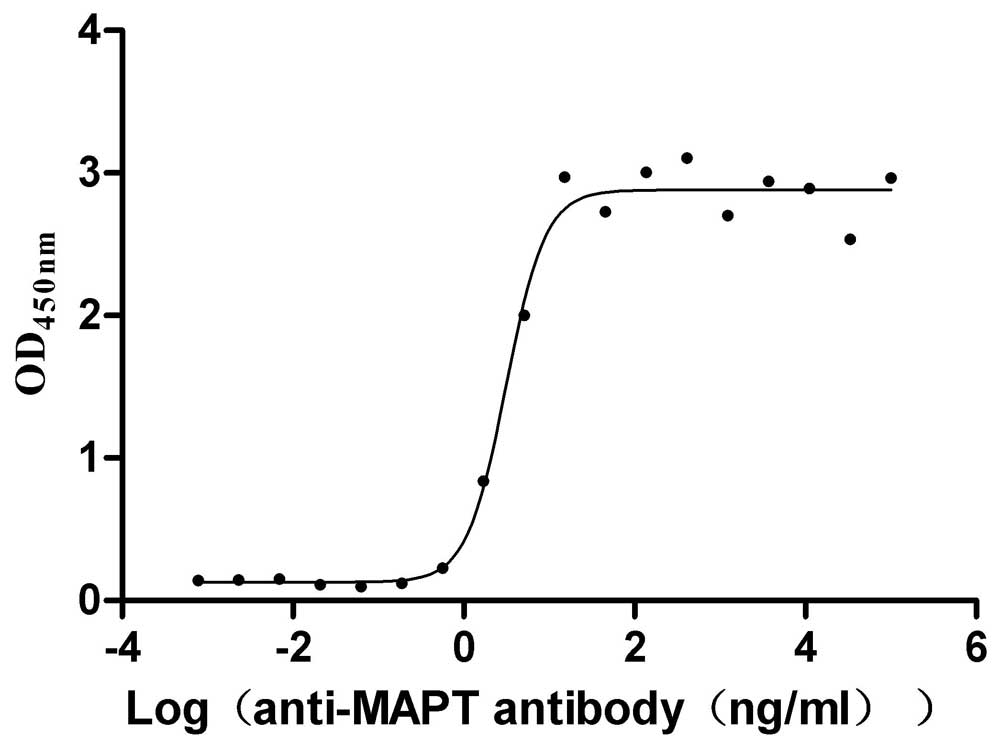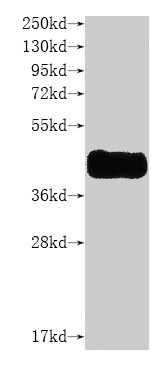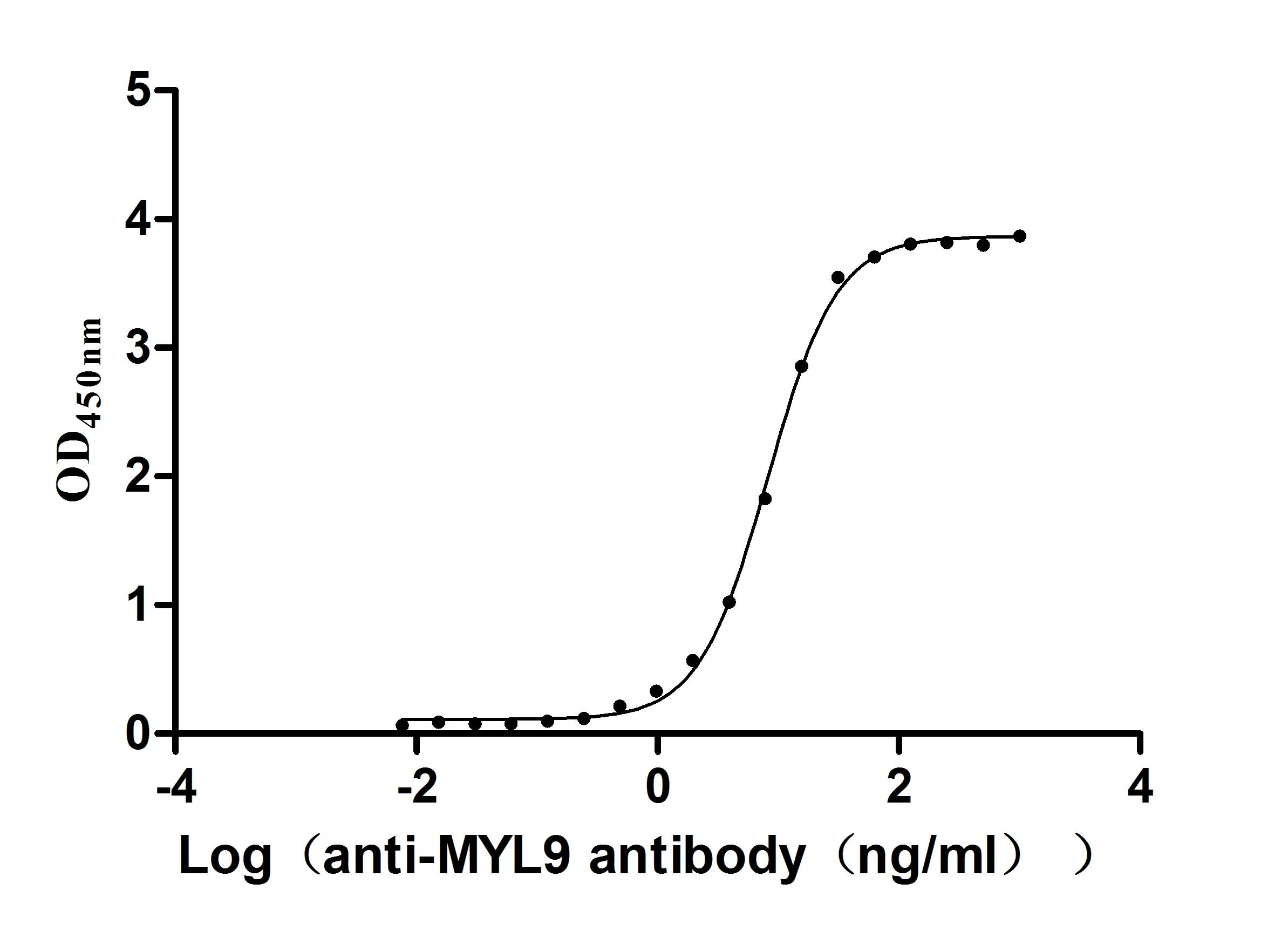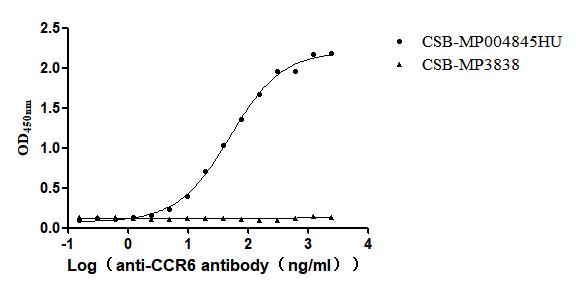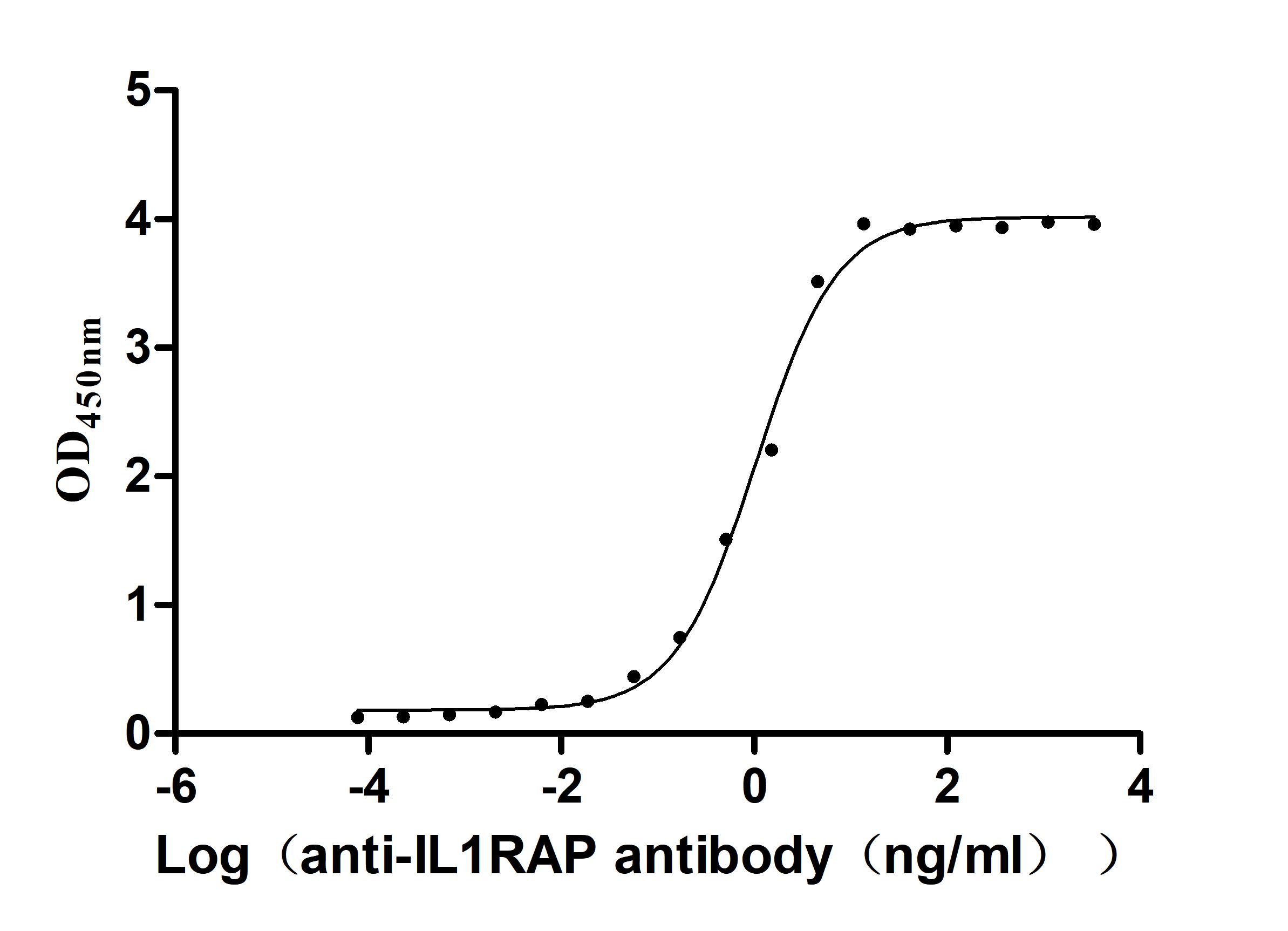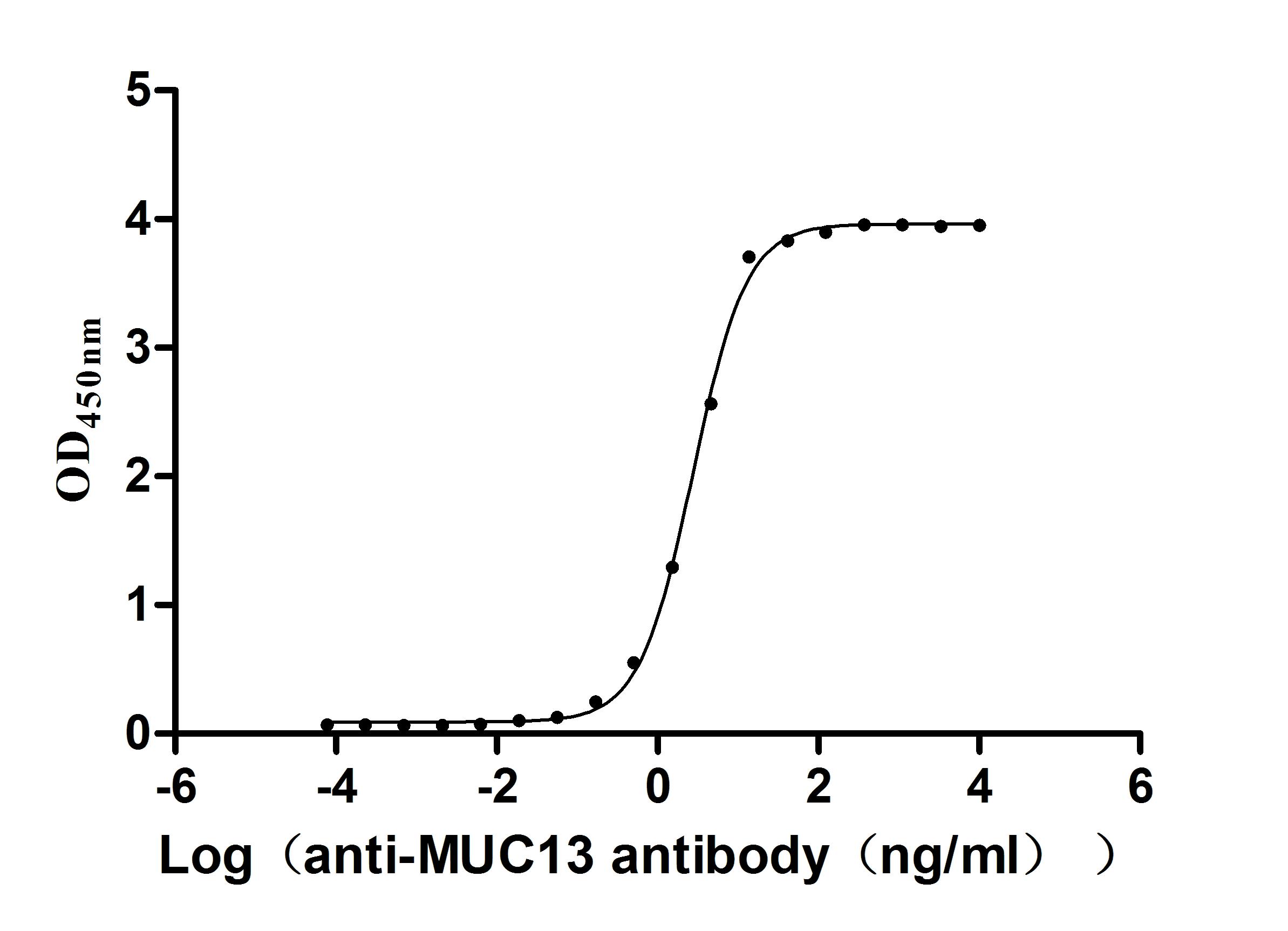Recombinant Human FGGY carbohydrate kinase domain-containing protein (FGGY)
-
中文名称:人FGGY重组蛋白
-
货号:CSB-YP853393HU
-
规格:
-
来源:Yeast
-
其他:
-
中文名称:人FGGY重组蛋白
-
货号:CSB-EP853393HU
-
规格:
-
来源:E.coli
-
其他:
-
中文名称:人FGGY重组蛋白
-
货号:CSB-EP853393HU-B
-
规格:
-
来源:E.coli
-
共轭:Avi-tag Biotinylated
E. coli biotin ligase (BirA) is highly specific in covalently attaching biotin to the 15 amino acid AviTag peptide. This recombinant protein was biotinylated in vivo by AviTag-BirA technology, which method is BriA catalyzes amide linkage between the biotin and the specific lysine of the AviTag.
-
其他:
-
中文名称:人FGGY重组蛋白
-
货号:CSB-BP853393HU
-
规格:
-
来源:Baculovirus
-
其他:
-
中文名称:人FGGY重组蛋白
-
货号:CSB-MP853393HU
-
规格:
-
来源:Mammalian cell
-
其他:
产品详情
-
纯度:>85% (SDS-PAGE)
-
基因名:FGGY
-
Uniprot No.:
-
别名:FGGYFGGY carbohydrate kinase domain-containing protein; EC 2.7.1.-
-
种属:Homo sapiens (Human)
-
蛋白长度:full length protein
-
表达区域:1-551
-
氨基酸序列MSGGEQKPER YYVGVDVGTG SVRAALVDQS GVLLAFADQP IKNWEPQFNH HEQSSEDIWA ACCVVTKKVV QGIDLNQIRG LGFDATCSLV VLDKQFHPLP VNQEGDSHRN VIMWLDHRAV SQVNRINETK HSVLQYVGGV MSVEMQAPKL LWLKENLREI CWDKAGHFFD LPDFLSWKAT GVTARSLCSL VCKWTYSAEK GWDDSFWKMI GLEDFVADNY SKIGNQVLPP GASLGNGLTP EAARDLGLLP GIAVAASLID AHAGGLGVIG ADVRGHGLIC EGQPVTSRLA VICGTSSCHM GISKDPIFVP GVWGPYFSAM VPGFWLNEGG QSVTGKLIDH MVQGHAAFPE LQVKATARCQ SIYAYLNSHL DLIKKAQPVG FLTVDLHVWP DFHGNRSPLA DLTLKGMVTG LKLSQDLDDL AILYLATVQA IALGTRFIIE AMEAAGHSIS TLFLCGGLSK NPLFVQMHAD ITGMPVVLSQ EVESVLVGAA VLGACASGDF ASVQEAMAKM SKVGKVVFPR LQDKKYYDKK YQVFLKLVEH QKEYLAIMND D
-
蛋白标签:Tag type will be determined during the manufacturing process.
The tag type will be determined during production process. If you have specified tag type, please tell us and we will develop the specified tag preferentially. -
产品提供形式:Lyophilized powder
Note: We will preferentially ship the format that we have in stock, however, if you have any special requirement for the format, please remark your requirement when placing the order, we will prepare according to your demand. -
复溶:We recommend that this vial be briefly centrifuged prior to opening to bring the contents to the bottom. Please reconstitute protein in deionized sterile water to a concentration of 0.1-1.0 mg/mL.We recommend to add 5-50% of glycerol (final concentration) and aliquot for long-term storage at -20℃/-80℃. Our default final concentration of glycerol is 50%. Customers could use it as reference.
-
储存条件:Store at -20°C/-80°C upon receipt, aliquoting is necessary for mutiple use. Avoid repeated freeze-thaw cycles.
-
保质期:The shelf life is related to many factors, storage state, buffer ingredients, storage temperature and the stability of the protein itself.
Generally, the shelf life of liquid form is 6 months at -20°C/-80°C. The shelf life of lyophilized form is 12 months at -20°C/-80°C. -
货期:Delivery time may differ from different purchasing way or location, please kindly consult your local distributors for specific delivery time.Note: All of our proteins are default shipped with normal blue ice packs, if you request to ship with dry ice, please communicate with us in advance and extra fees will be charged.
-
注意事项:Repeated freezing and thawing is not recommended. Store working aliquots at 4°C for up to one week.
-
Datasheet :Please contact us to get it.
相关产品
靶点详情
-
功能:Catalyzes ATP-dependent phosphorylation of D-ribulose at C-5 to form D-ribulose 5-phosphate. Postulated to function in a metabolite repair mechanism by preventing toxic accumulation of free D-ribulose formed by non-specific phosphatase activities. Alternatively, may play a role in regulating D-ribulose 5-phosphate recycling in the pentose phosphate pathway. Can phosphorylate ribitol with low efficiency.
-
基因功能参考文献:
- S. cerevisiae Ydr109c and human FGGY could act as metabolite repair enzymes, serving to re-phosphorylate free d-ribulose generated by promiscuous phosphatases from d-ribulose 5-phosphate. In human cells, FGGY can additionally participate in ribitol metabolism. PMID: 27909055
- Single-nucleotide polymorphism in FGGY is not associated with amyotrophic lateral sclerosis in a large Chinese cohort. PMID: 24439956
- The result of this study suggested that FLJI0986 that do not modulate the risk for SALS in the German population. PMID: 19464757
- This study indicated that mutations in fggy genes are unlikely to be a common cause of ALS in the French and French Canadian populations. PMID: 20001489
- Results suggest that common genetic variation in FGGY is not associated with susceptibility to sporadic ALS in genetically homogeneous populations from northern Europe. PMID: 19922138
- Variants of FLJ10986 may confer susceptibility to sporadic ALS (amyotrophic lateral sclerosis). PMID: 17671248
显示更多
收起更多
-
相关疾病:Amyotrophic lateral sclerosis (ALS)
-
蛋白家族:FGGY kinase family
-
组织特异性:Expressed in kidney, lung and small intestine and to a lower extent in liver and detected in cerebrospinal fluid (at protein level).
-
数据库链接:
HGNC: 25610
OMIM: 105400
KEGG: hsa:55277
STRING: 9606.ENSP00000360262
UniGene: Hs.444301
Most popular with customers
-
Recombinant Mouse Desmoglein-3 (Dsg3), partial (Active)
Express system: Mammalian cell
Species: Mus musculus (Mouse)
-
Recombinant Macaca mulatta Microtubule-associated protein tau (MAPT) (Active)
Express system: Mammalian cell
Species: Macaca mulatta (Rhesus macaque)
-
Recombinant Human C-C chemokine receptor type 8 (CCR8)-VLPs (Active)
Express system: Mammalian cell
Species: Homo sapiens (Human)
-
Recombinant Human Cytotoxic and regulatory T-cell molecule (CRTAM), partial (Active)
Express system: Mammalian cell
Species: Homo sapiens (Human)
-
Recombinant Human Myosin regulatory light chain 12B(MYL12B) (Active)
Express system: E.coli
Species: Homo sapiens (Human)
-
Recombinant Human C-C chemokine receptor type 6(CCR6)-VLPs (Active)
Express system: Mammalian cell
Species: Homo sapiens (Human)
-
Recombinant Macaca fascicularis Interleukin 1 receptor accessory protein(IL1RAP), partial (Active)
Express system: Mammalian cell
Species: Macaca fascicularis (Crab-eating macaque) (Cynomolgus monkey)
-
Recombinant Human Mucin-13(MUC13),partial (Active)
Express system: yeast
Species: Homo sapiens (Human)


